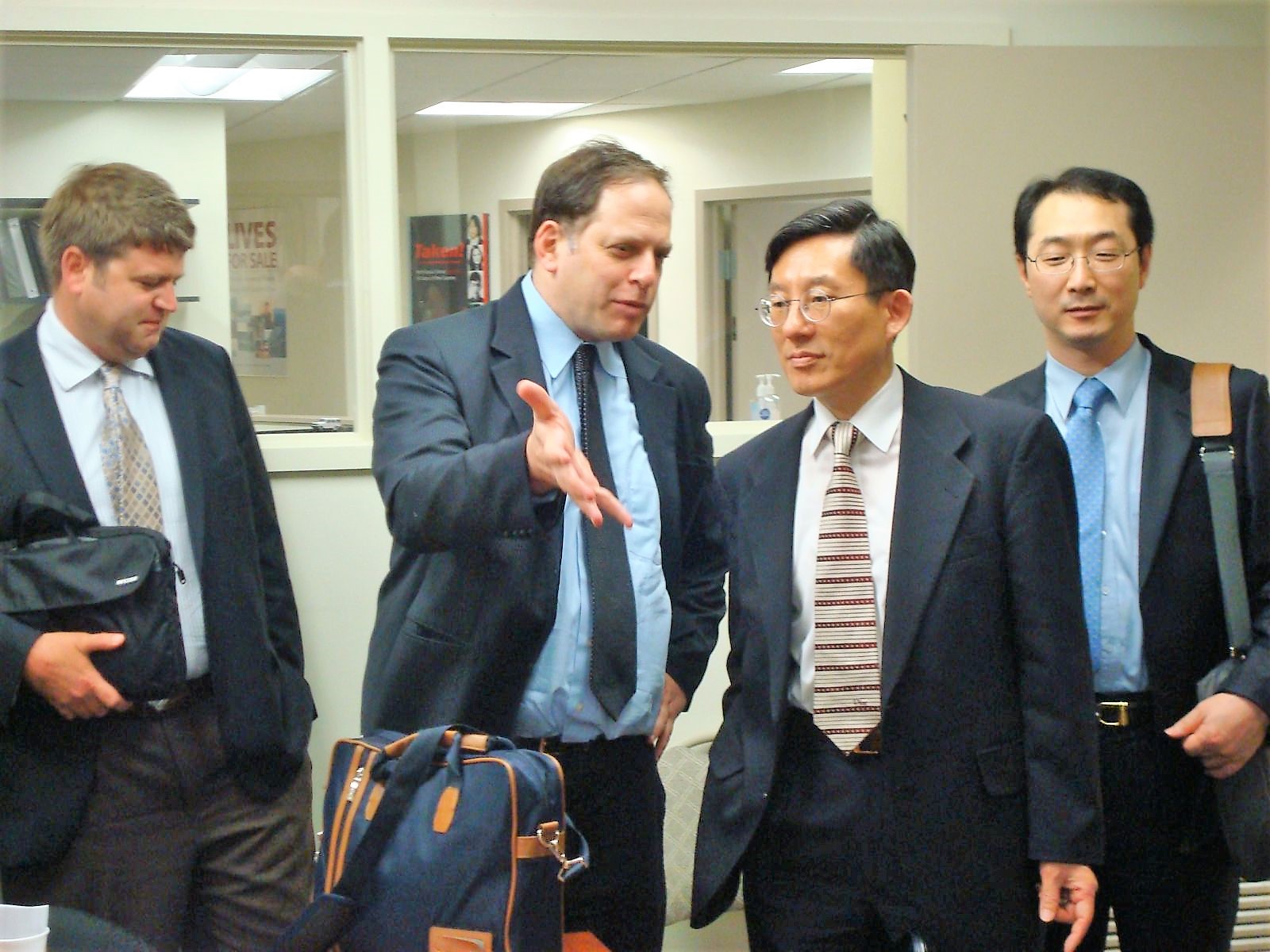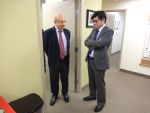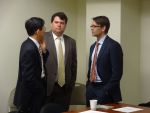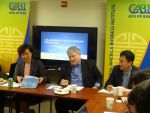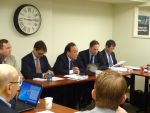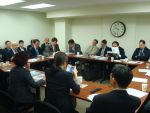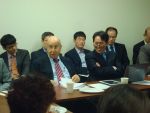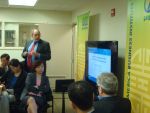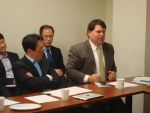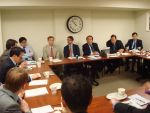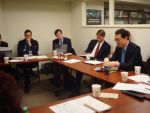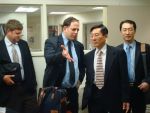In collaboration with the East Asia Institute (EAI), GABI hosted a private roundtable featuring an intimate group of notable experts on the issues of the US-ROK 123 agreement. The roundtable featured presentations from experts from both the US and South Korea, and represented various views—academia, nonproliferation, industry, and so forth.
The US has traditionally been viewed as the “guardian” of global nonproliferation, and has generally been consistent in seeking to limit the spread of ENR technologies. Under the current US-ROK 123 agreement, the ROK must seek prior consent before enriching uranium or reprocessing US-origin fuel. However, in parallel with its dramatic economic growth and socio-political changes in the past decades, South Korea has witnessed rapid development in its civil nuclear program, and therefore seeks appropriate revisions to the decades-old agreement. Among these revisions is a call for advance consent for ENR, which South Korea believes will help address issues of waste management, energy security, and export competitiveness. However, the US has remained hesitant in deciding whether to honor Korea’s request. In the meanwhile, the danger of a lapse in the US-ROK 123 remains, threatening to sever trade ties and derail collaboration in third country markets. For the US nuclear industry, expiration in the agreement would risk thousands of American jobs and pose severe reputational risks.
The discord between the US and South Korea on this issue can be somewhat likened to a chicken-and-egg problem—while the US perceives that South Korea lacks a long-term strategy, the ROK argues that it is unable to develop a long-term plan without knowing the boundaries set by a 123 agreement with the US. Furthermore, although the US claims that South Korea is presently unable to wholly reap the benefits of a full fuel cycle capability, Korea contends that development of a pyroprocessing-fast reactor fuel cycle would only be further delayed without advance consent. Other relevant points in this debate include justifications for ENR in countries such as Brazil and South Africa, public reactions to this issue in both countries, and the realities of the global nuclear marketplace.

